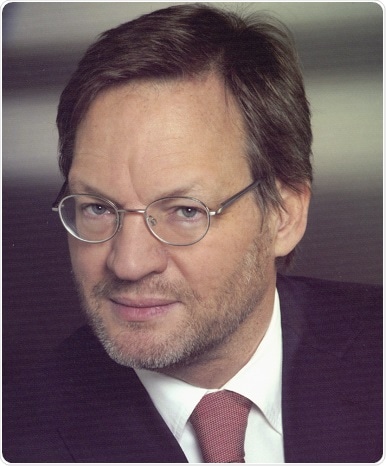Sep 28 2018
The European Society of Coloproctology’s (ESCP) Education Committee has launched a new training school to help surgeons continue their professional education and development in the latest techniques of their field.
The European School of Coloproctology (ESC) will offer a series of training courses in topics such as laparoscopic complete mesocolic excision and creation of continent pouches and continent ileostomies. Future programmes covering robotic colorectal surgery and other topics are also planned. The format of these courses will help advance doctors’ knowledge and skills while fitting in with busy surgical schedules.
The Society has launched its new initiative on the eve of its Annual Scientific & General Meeting taking place in Nice, France.
ESCP envisions that its new School will help coloproctologists across Europe access important new skills and knowledge in a timely and convenient manner that will in turn advance treatment across the continent. It will offer a mix of courses delivered by leading coloproctology experts throughout each year, allowing participants to pick and choose which trainings they require.
Klaus Matzel, who is the outgoing chair of ESCP's Education Committee, and Head of Coloproctology at University Erlangen-Nürnberg in Germany, led on creating the School and will oversee its development. He said:

“We are dedicated to offering coloproctologists as much assistance and opportunity in furthering their skills and knowledge as possible. With the pace of technological change and consequent medical breakthroughs continuing to increase, it is important for doctors to undertake regular training and education.
“We believe the European School of Coloproctology will have a positive impact on the practice of those who attend, as well as help strengthen networks of knowledge across country borders. This will ultimately lead to better outcomes for patients.”
The programme of the ESC will be launched with two activities: one is a curriculum for laparoscopic complete mesocolic excision (LapCME), which includes lectures, hands-on workshop and proctoring at the participants’ home clinics, the second one is a comprehensive two-day course on Ileal pouch-anal anastomosis (IPAA) and continent ileostomy.
Klaus Matzel continued:
We are looking forward to also hosting a training program dedicated to robotic colorectal surgery later this year. This program will include train-the-trainer courses for faculty, e-learning, workshops, hands-on training and proctoring for the participants.”
ESCP will design and deliver the objectives, content and format of each course while educational grants from industry will help to subsidise training costs. Eligibility and application requirements will vary per course, depending on the level and experience each is pitched at.
The first two courses for ESC are now available for registration. They are:
- Laparoscopic complete mesocolic excision (LapCME) for colon cancer, supported by Johnston & Johnston and Medtronic, taking place in Hamburg.
- Ileal pouch-anal anastomosis (IPAA) and continent ileostomy looking at Kock pouch surgery and modifications, supported by Johnston & Johnston, and taking place in Hamburg.
Further details and the ability to sign-up for future updates are available on the ESCP website by searching for “coloproctology school” in the search bar.